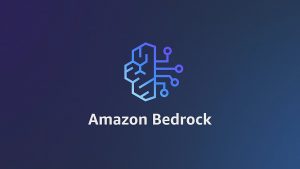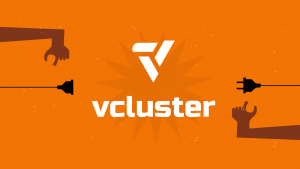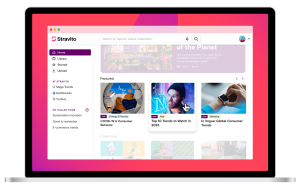When every enterprise is a software company: the VC perspective | #vmword
As the Managing Partner at early-stage investment firm Ignition Partners, Frank Artale is proud that his company was an early investor in Big Data. Ignition predicted a resurgence in enterprise IT and is now amazed to see how much innovation is occurring on that front. A huge asset to that innovation are the professional ISB tools that enterprise developers are using.
![]()
Enterprises will use tools from dev pros
In a live interview with SiliconANGLE’s roving news desk theCUBE at VMworld 2014, Artale called out the Bay Area’s Trifacta as one of their most recent investments. It’s an application that only exists because of Hadoop. “As people start living in data,” Artale remarked, “Trifacta will become really important.”
Ignition’s investing strategy has been to invest long term, so scouting out trends is key. One of the trends Artale noted recently is that “every business is becoming a software company.” Industries across the board are hiring software developers. Artale expects that, over the next few years, enterprises will begin to take advantage of the same techniques that professional developers employ to build their own tools. He expects this trend, along with an unprecedented level of hiring, to help drive differentiation.
Enterprise developers face the same kind of challenges that, Artale says, “were conquered first by the professional ISBs. In particular, enterprise mobile.” Artale says he is encouraged to see more tool sets available to enterprise developers to enable mobile applications.
Increasingly, Artale also noted that he’s seeing enterprises move to where software developments occur. Many have ‘innovation’ offices in Silicon Valley, Seattle, or the Gowanus area in New York.
Overcoming enterprise challenges
Artale noted that one of the challenges enterprises face now is bringing in Node. One of the companies Ignition has invested in, called StrongLoop that simplifies the use of Node.js for the enterprise.
Often, Artale says that he encourages enterprise developers not to “look a the entire smorgasbord.” Instead, he suggests that they focus on components that they know will work and build teams around those components. He cited the example of client server development in the 90s. What Artale said Ignition did was suggest developers “begin with a set of communication protocols at the bottom” and then build a set of standards as to how interface and database are designed.
Apps now need to be likable
Furrier asked Artale to share his take on how apps are dictating workloads. “Design,” Artale replied, “is coming front and center.” Apps now have to do more than provide access to data — they have to provide utility and be engaging. It’s key that apps be well designed “to bring the user to what they need at that time,” Artale added.
Customers know whether companies should integrate — or not!
When asked about what he makes of companies that raise large funding rounds but don’t go public, Artale replied that it’s partially a matter of taste but also concerns “what the company needs to do to continue to operate independently.” Whatever happens in terms of raising rounds, Artale says companies are right to maintain independence. When enterprise CIOs encounter start ups, one for the first questions they ask is “How will you stay independent?”
To some enterprises, Artale said, integrating can be a bad idea. It all depends on what customers believe, Artale explained. If customers believe there’s a product that would benefit from integration with a larger company, the often go to the big buyers themselves to make that recommendation.
But when an independent tech company has money in the bank and the right personal to help businesses understand how the product works and who to deploy it, then clients are more likely to believe that the service provider has “skin in the game.”
Going public means showing predictable performance
Going public, Artale said, “means operating as a public entity.” Ignition encourages the companies that plan to go public to start the process two years a head of time. Ensuring predictability of revenue is a big part of ramping-up to go public, Artale commented. “You can see how companies that do have predictable performance are reward, and companies that don’t are punished.”
Frank Artale’s investing thesis
Artale’s investment thesis when it comes to software for businesses involves answering a series of questions: 1. “Is this a class of thing that every business will need one of?” and 2. “Is this the team to create that category, define it, and be the first mover?”
One of the technical aspects in which Artale is most interested in right now is computing trend. He’s been watching the addition from big data to relational, the virtualization take off, and the movement around containers. “But,” he added, “I think we’re still early days on the big data side.”
The biggest enabler in software, Artale observed, is silicon technology. It’s provided an increase in transistors, lowered the price of memory and raised the speed of IO.
photo credit: coffish via photopin cc
A message from John Furrier, co-founder of SiliconANGLE:
Your vote of support is important to us and it helps us keep the content FREE.
One click below supports our mission to provide free, deep, and relevant content.
Join our community on YouTube
Join the community that includes more than 15,000 #CubeAlumni experts, including Amazon.com CEO Andy Jassy, Dell Technologies founder and CEO Michael Dell, Intel CEO Pat Gelsinger, and many more luminaries and experts.
THANK YOU













